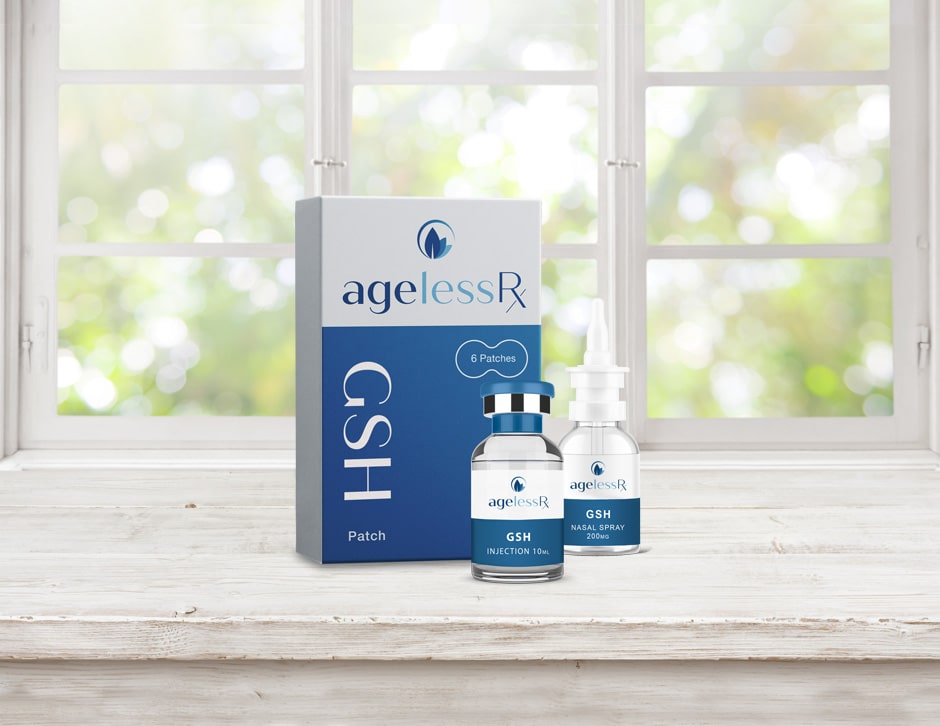
What is Glutathione?

Glutathione (commonly referred to as GSH) is known by experts as the body’s “master antioxidant” that is capable of preventing damage to important cellular components.
According to this scientific editorial report, Glutathione has many important functions, including:
- Making DNA, the building blocks of proteins and cells
- Supporting immune function
- Breaking down some free radicals
- Helping certain enzymes function
- Regenerating vitamins C and E
- Transporting mercury out of the brain
- Helping the liver and gallbladder deal with fats
- Assisting regular cell death (a process known as apoptosis)
- Forming sperm cells
Why is Glutathione Important?
Glutathione is an important and potent antioxidant for the human body. By combating free radicals (molecules that can damage your body’s cells), Glutathione helps fight off high levels of oxidative stress. Oftentimes, too-high levels of oxidative stress and Glutathione depletion can lead to multiple diseases, including neurodegenerative disorders (Alzheimer’s, Parkinson’s), pulmonary disease (asthma, COPD), immune disease (HIV, autoimmune disease), cardiovascular diseases (hypertensions), liver disease, cystic fibrosis, and aging. (1)
There are many factors that can contribute to a decline in Glutathione levels, such as chronic disease, poor diet, infection, or constant stress. Even if you live a picture-perfect lifestyle, Glutathione levels still also naturally decline with age. As such, regardless of the lifestyle and/or biological causes for Glutathione decline in each person, a decrease in levels can cause an increased susceptibility to many age-related conditions and diseases.
Keeping this in mind, it’s important to replenish your Glutathione levels to help your body continue to detoxify and fight off high levels of oxidative stress—especially as you age.
What’s the Link Between Glutathione and Aging?
As we age, our natural ability to make and replenish Glutathione diminishes. As such, this can cause an increased susceptibility to many age-related conditions and diseases—which includes the aging process itself, metabolic deficiencies, as well as chronic age-related diseases, such as cataracts, hearing impairment, and glaucoma, to name a few.
Fortunately, due to several clinical studies and clinical evidence, there are options to optimize and replenish Glutathione levels as we age.
How Can I Replenish GSH Levels?
Historically, it has been possible to increase Glutathione levels through oral supplements or intravenous (IV) supplementation, however, these methods have generally been less effective and more expensive than other, newer options available today.
Newer and more cost-effective methods to replenish Glutathione levels include:
- GSH Patches: GSH Patches are a new technology that utilizes a special iontophoresis patch to administer pure GSH directly into the bloodstream via skin absorption. Wearing one patch with GSH solution once per week for four hours is shown to increase GSH levels by up to 50%.
To learn more about Glutathione (GSH) Patches, click here.
- GSH Nasal Spray: GSH Nasal Spray is a new and effective way to boost your brain GSH levels for improved mental clarity and cognitive performance. Most patients feel benefits within one hour of administering a single spray of pure GSH into each nostril.
To learn more about Glutathione (GSH) Nasal Spray, click here.
- GSH Injections: GSH Subcutaneous Injections are another effective way to supplement your GSH levels. Injections allow GSH to enter your bloodstream almost immediately, which often results in benefits in as little as one hour.
To learn more about Glutathione (GSH) Subcutaneous Injections, click here.
While it still requires more research, certain foods high in amino acids that contain sulfur may also help boost your GSH levels, such as unprocessed meats, garlic, broccoli, asparagus, avocados, and spinach. Supplements, such as Curcumin, Selenium, Vitamin C, and Vitamin E may also help to boost your body’s production of Glutathione—but none are more effective than replenishing your levels with pure GSH.
The Bottom Line?
Joseph Pizzorno, ND, and Editor in Chief of Integrative Medicine: A Clinician’s Journal, said it best:
“Clearly, adequate availability of Glutathione is critical for maintaining health, protecting the body from toxins, and promoting longevity.”
—
References: